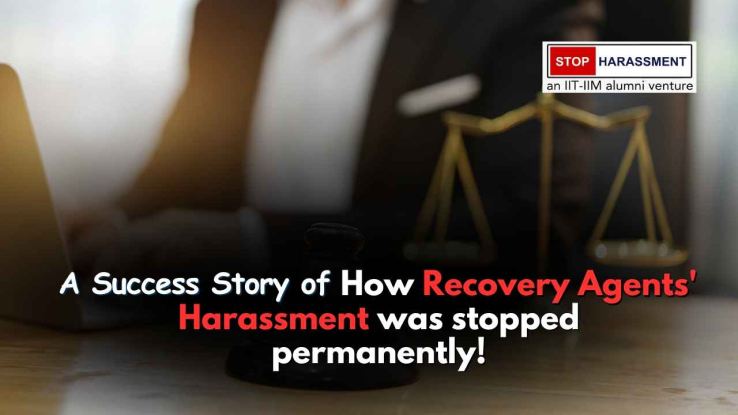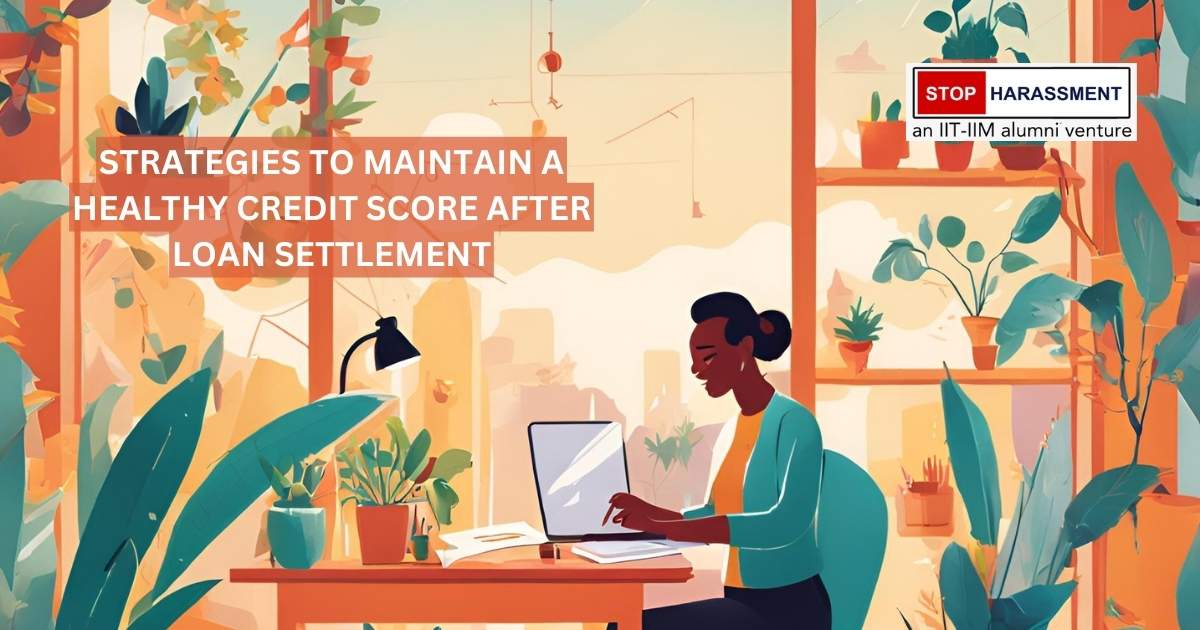· Recovery · 5 min read
A success story of how recovery agents' harassment was stopped permanently!
Understanding the concept of harassment sharpens your awareness of your rights, especially when dealing with aggressive recovery agents.

Understanding the concept of harassment sharpens your awareness of your rights, especially when dealing with aggressive recovery agents. Loan takers often become targets of verbal abuse and intimidation by these agents, who use unruly tactics to pressure repayment. They thrive on the victim because the loan takers are unaware of their security guidelines by the RBI.
That’s why it’s better to avoid the brutality caused later by a recovery agent. Moreover, it is necessary for the loan borrower to understand his protection laws. This really helps in avoiding disasters at the doorstep.
The Reserve Bank of India (RBI) has set guidelines to protect borrowers from harassment by recovery agents. Here are five key rights for the victims:
Right to Privacy: Recovery agents must respect the privacy of the borrowers. They should only contact the borrower at appropriate hours and not early in the morning or late at night. Harassment through frequent calls, visits, or any form of communication is prohibited.
Right to Dignity: Borrowers should be treated with respect and dignity. Recovery agents must not use abusive language or resort to threatening tactics to recover the debt. Any form of physical or verbal abuse is strictly prohibited.
Right to Fair Treatment: Borrowers should be informed about the amount due, the interest rate, and any additional charges. They have the right to get fair and transparent treatment without any hidden charges or misinformation.
Right to Notice: Before initiating any recovery process, the lender must send a written notice to the borrower. This notice should clearly state the amount due and the steps that will be taken if the borrower fails to repay.
Right to Grievance Redressal: Borrowers have the right to file a complaint if they face any harassment or unfair practices by recovery agents. Financial institutions are required to have a proper process in place to address and resolve such complaints in a timely manner.
Now, as much knowledge is useful, it is also important to learn from some people’s experiences to be more aware and prepared if it is you or someone you know challenging to take the best yet wise decision when dealing with recovery agents.
This experience is about Mr. Chatterjee who faced harassment by recovery agents in extreme cases. And was feeling powerless and tied down to his circumstances.
Respectable Mr. Chatterjee, who lived in a decent neighbourhood, was put in a difficult situation. He’d spent hours being harassed by agents. For three hours, this agent remained outside Mr. Chatterjee’s house, shouting and screaming nonstop. The entire neighbourhood’s harmony and tranquillity were sabotaged by the verbal abuse caused.
As per the advice of his Legal Consultants, Mr. Chatterjee called the Police Control Room (PCR) and asked for help in order to get relief right now. The Sub-Inspector (SI) who answered the phone, however, declined to assist, stating that the agent most likely started the private quarrel between Mr. Chatterjee and the bank. Mr. Chatterjee, feeling helpless, asked his legal consultants for assistance.
As soon as Mr. Chatterjee called in distress, the two legal consultants evaluated the case and acted promptly. They came to see that Mr. Chatterjee’s constitutional and human rights were being violated by the harassment, which went beyond merely being a personal problem. This is how they handled the matter:
Filing of E-FIR: The harassment and the local police’s inaction were documented in an electronic First Information Report (E-FIR) that the legal consultants promptly submitted. This E-FIR ensured that Mr. Chatterjee’s complaint was formally documented by acting as an official record of the incident.
Involving Higher Authorities: The consultants made contact with the Station House Officer (SHO) of the relevant police station after realising the seriousness of the problem. They highlighted the duty under the Constitution of India.
Engaging Higher Authorities: Recognizing the gravity of the situation, the consultants contacted the Station House Officer (SHO) of the concerned police station. They emphasised the constitutional obligation of the police to protect civilians and highlighted the human rights violations occurring due to the agent’s behaviour.
The legal framework and rights of Mr. Chatterjee were shared by the lawyers, who also explained how the agent’s acts were violating his rights to life and personal liberty as guaranteed by the Indian Constitution. They emphasised that it was the responsibility of the police to step in and shield the public from intimidation and harassment. Also, the SHO scolded the SI who backed off from the situation for being negligent towards a citizen in dire need of help.
Finally, the legal consultants’ tenacious efforts paid off, as the SHO moved quickly to take action against the agent. In addition, the police filed a formal complaint against the agent, who was thereafter arrested for his illegal activities. In addition to protecting Mr. Chatterjee, the consultants’ proactive approach established a standard for handling cases of a similar nature.
Conclusion
So, as a person facing harassment from recovery agents, it’s important to know your safety laws that allow you to find freedom from something that could make you lose your control and feel powerless. The basic crux is that if you are dealing with collection agents and you feel your personal space is violated, then first and foremost file a complaint to the police. It is the only way and the right way to find safety for yourself. However, having legal support allows you to speed up the process, get more knowledge on your circumstances, and achieve immediate result

 (Stopharassment) Chasing Dues the Right Way Understanding Legal Debt Recovery.CEsdngE0.jpg)

.BRHoz0Cm.jpg)